Books on consciousness
A list of books relating to the hard problem of consciousness. Regularly updated cos I keep finding new stuff all the time.
A list of books relating to the hard problem of consciousness. Regularly updated cos I keep finding new stuff all the time.
1999
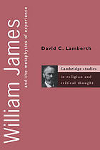 David C. Lamberth
David C. Lamberth
William James and the Metaphysics of Experience
(Cambridge 1999)
This book offers a new perspective on William James by providing a precise analysis of his transition from an empirical psychologist to a metaphysician. It also offers detailed interpretations of James’s religious views within the context of his attempt to overcome the perennial bugbear of philosophy: mind-body dualism. See Cambridge | Amazon | Google
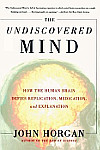 John Horgan
John Horgan
The Undiscovered Mind: How the Human Brain Defies Replication, Medication, and Explanation
(Simon & Schuster 1999)
In his acclaimed 1996 book, The End of Science, Horgan ignited a controversy about the limits of knowledge in a wide range of sciences. In this book, he focuses on science’s effort to understand the human mind. As he shows, the mystery of human consciousness remains so impregnable that to expect science to penetrate it anytime soon is absurd. See Simon & Schuster | Amazon | Google
 Eva Brann
Eva Brann
What, Then, Is Time?
(Rowman & Littlefield 1999)
Brann approaches the mystery of time through the study of ten famous texts by such thinkers as Plato, Augustine, Kant, Husserl, and Heidegger. She also offers her independent reflections. She argues that neither external time nor the time of the human past is real: the one is a comparison of motions and the other a projection of memory. She concludes that true time is internal and has its origin in the imaginative structure of memory and expectation. See Rowman & Littlefield | Amazon | Google
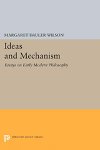 Margaret Dauler Wilson
Margaret Dauler Wilson
Ideas and Mechanism: Essays on Early Modern Philosophy
(Princeton 1999)
For more than three decades, Margaret Wilson’s essays on early modern philosophy have influenced scholarly debate. This collection not only provides access to nearly all of her most significant work, but also demonstrates the continuity of her thought over time. The thirty-one essays gathered here deal with some of the best known early philosophers, including Descartes, Leibniz, Locke, Spinoza, and Berkeley. See Princeton | Amazon | Google
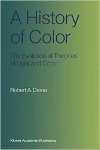 Robert A. Crone
Robert A. Crone
A History of Color: The Evolution of Theories of Light and Color
(Springer 1999)
The first comprehensive text on the history of color theories since Halbertsma’s book of 1947. Color is discussed in close connection with the evolution of ideas of light and vision. The book has chapters on the ancient Greek ideas of vision and color, the contributions of Arabic science, the scientific revolution from Kepler to Newton, the early history of the three-color hypothesis, the trichromatic theory and defective color vision, and the theories of Goethe, Schopenhauer and Hering. New understanding of the structure and functions of the retina and the brain finally results in the modern science of color vision. See Springer | Amazon | Google
 Jean Petitot et al. (eds.)
Jean Petitot et al. (eds.)
Naturalizing Phenomenology
(Stanford 1999)
Aims to shed new light on the relation between Husserlian phenomenology and current efforts toward a scientific theory of cognition. The contributors assess the extent to which the kind of investigation Husserl initiated favors the construction of a scientific theory of cognition. Its central concern is not only the progress of contemporary theories of cognition but also the reorientation of Husserlian phenomenology. See Stanford | Amazon | Google
 Colin McGinn
Colin McGinn
The Mysterious Flame
(Basic Books 1999)
McGinn argues that we can never truly “know” consciousness – that the human intellect is not equipped to unravel this mystery. He also demonstrates that accepting this limitation opens up a whole new field of investigation. In elegant prose, McGinn explores the implications of this Mysterian position, such as the new value it gives to the power of dreams and introspection, and challenges the reader with intriguing questions about the nature of minds and brains. See Basic Books | Google | Amazon
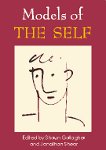 S. Gallagher & J. Shear (eds.)
S. Gallagher & J. Shear (eds.)
Models of the Self
(Imprint 1999)
A comprehensive reader on the problem of the self as seen from the viewpoints of philosophy, developmental psychology, robotics, cognitive neuroscience, psychopathology, semiotics, phenomenology and contemplative studies, based around a keynote paper by Galen Strawson. Never before has such a wide range of multidisciplinary expertise been brought to bear in a single volume upon the most perplexing question of the human condition – what is the self? See Imprint | Amazon | Google
 David Foulkes
David Foulkes
Children’s Dreaming and the Development of Consciousness
(Harvard 1999)
In this book, which distills a lifetime of study, Foulkes shows that dreaming as we normally understand it – active stories in which the dreamer is an actor – appears relatively late in childhood. This true dreaming begins between the ages of 7 and 9. He argues that this late development of dreaming suggests an equally late development of waking reflective self-awareness. See Harvard | Google
 John McCrone
John McCrone
Going Inside: A Tour Round a Single Moment of Consciousness
(Faber & Faber 1999)
What happens in that split second before we become aware and the brain prompts us to speak or act? McCrone takes us inside a single instant of consciousness – that moment before a tennis player hits the ball without seeing it, and explains why the model of the mind as a computer is being abandoned. In its place has emerged a view of a dynamic, evolving, chaotic system – seeing the brain as an organ that literally “grows” awareness. See John McCrone’s site | Amazon | Google
 William Hasker
William Hasker
The Emergent Self
(Cornell 1999)
Hasker argues that contemporary forms of materialism fail to confront certain crucial aspects of experience. He also criticizes the two versions of substance dualism most widely accepted today – Cartesian and Thomistic – and presents his own emergent dualism. Hasker’s theory recognizes the critical role of the brain and nervous system for mental processes, while avoiding the mechanistic reductionism of recent materialism. See Cornell | Google
 F. Varela & Jonathan Shear (eds.)
F. Varela & Jonathan Shear (eds.)
The View from Within: First-person Approaches to the Study of Consciousness
(Imprint 1999)
The study of conscious experience has not kept pace with the dramatic advances in brain-scanning technologies. Drawing on a wide range of approaches, from phenomenology to meditation, this volume examines the possibility of a disciplined approach to the study of subjective states. See Imprint | Google
 D. M. Armstrong
D. M. Armstrong
The Mind-body Problem: An Opinionated Introduction
(Westview 1999)
Based on university lectures given over many years, this book examines the broad debate between materialists about the mind and their opponents. After examining the views of Descartes, Hume and Huxley, the debate is traced to the present day. By the end, the reader is afforded both a grasp of the state of the controversy, and how we got there. See Westview | Google
 Antonio Damasio
Antonio Damasio
The Feeling of What Happens
(Harcourt 1999)
Damasio achieves a new understanding of consciousness by asking and answering profound questions: How do we know what we know? Why do our conscious and private minds have a sense of self? A gifted medical clinician with decades of caring for patients with brain damage, Damasio offers a new understanding of the biological roots of consciousness and its role in survival. See Google | New York Times review
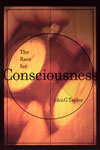 John G. Taylor
John G. Taylor
The Race for Consciousness
(MIT 1999)
There is a sense among scientists that the time is finally ripe for the problem of consciousness to be solved once and for all. John Taylor presents his own entry into the race, which he has been working on for the past twenty-five years – the relational theory of consciousness, according to which consciousness is created through the relations between brain states, especially those involving memories of personal experiences. See MIT | Google | Nigel Thomas review
 William Seager
William Seager
Theories of Consciousness: An Introduction and Assessment
(Routledge 1999)
The most remarkable fact about the universe is that certain parts of it are conscious. Somehow nature has managed to pull the rabbit of experience out of the hat of matter. Seager explores a number of ways to understand consciousness and its place in the physical world. Spectacularly diverse, the spectrum of theories ranges from those that identify consciousness with particular brain processes to those that seemingly deny that consciousness even exists. See Routledge | Google | Amazon
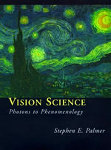 Stephen E. Palmer
Stephen E. Palmer
Vision Science: Photons to Phenomenology
(MIT 1999)
A comprehensive textbook on vision and a valuable reference for researchers in cognitive science, psychology, neuroscience, computer science, optometry, and philosophy. See M.I.T. | Google | Amazon
 Bill Brewer
Bill Brewer
Perception and Reason
(Oxford 1999)
An original view of the role of conscious experience in the acquisition of empirical knowledge. Most epistemology of perception takes a person’s possession of beliefs about the mind-independent world for granted and goes on to ask what further conditions these beliefs must meet if they are to be cases of knowledge. Brewer argues that this approach is completely mistaken. See Oxford U Press | Google | Amazon | Tim Crane review (pdf)

William James and the Metaphysics of Experience
(Cambridge 1999)
This book offers a new perspective on William James by providing a precise analysis of his transition from an empirical psychologist to a metaphysician. It also offers detailed interpretations of James’s religious views within the context of his attempt to overcome the perennial bugbear of philosophy: mind-body dualism. See Cambridge | Amazon | Google

The Undiscovered Mind: How the Human Brain Defies Replication, Medication, and Explanation
(Simon & Schuster 1999)
In his acclaimed 1996 book, The End of Science, Horgan ignited a controversy about the limits of knowledge in a wide range of sciences. In this book, he focuses on science’s effort to understand the human mind. As he shows, the mystery of human consciousness remains so impregnable that to expect science to penetrate it anytime soon is absurd. See Simon & Schuster | Amazon | Google

What, Then, Is Time?
(Rowman & Littlefield 1999)

Brann approaches the mystery of time through the study of ten famous texts by such thinkers as Plato, Augustine, Kant, Husserl, and Heidegger. She also offers her independent reflections. She argues that neither external time nor the time of the human past is real: the one is a comparison of motions and the other a projection of memory. She concludes that true time is internal and has its origin in the imaginative structure of memory and expectation. See Rowman & Littlefield | Amazon | Google

Ideas and Mechanism: Essays on Early Modern Philosophy
(Princeton 1999)
For more than three decades, Margaret Wilson’s essays on early modern philosophy have influenced scholarly debate. This collection not only provides access to nearly all of her most significant work, but also demonstrates the continuity of her thought over time. The thirty-one essays gathered here deal with some of the best known early philosophers, including Descartes, Leibniz, Locke, Spinoza, and Berkeley. See Princeton | Amazon | Google

A History of Color: The Evolution of Theories of Light and Color
(Springer 1999)
The first comprehensive text on the history of color theories since Halbertsma’s book of 1947. Color is discussed in close connection with the evolution of ideas of light and vision. The book has chapters on the ancient Greek ideas of vision and color, the contributions of Arabic science, the scientific revolution from Kepler to Newton, the early history of the three-color hypothesis, the trichromatic theory and defective color vision, and the theories of Goethe, Schopenhauer and Hering. New understanding of the structure and functions of the retina and the brain finally results in the modern science of color vision. See Springer | Amazon | Google

Naturalizing Phenomenology
(Stanford 1999)
Aims to shed new light on the relation between Husserlian phenomenology and current efforts toward a scientific theory of cognition. The contributors assess the extent to which the kind of investigation Husserl initiated favors the construction of a scientific theory of cognition. Its central concern is not only the progress of contemporary theories of cognition but also the reorientation of Husserlian phenomenology. See Stanford | Amazon | Google

The Mysterious Flame
(Basic Books 1999)

McGinn argues that we can never truly “know” consciousness – that the human intellect is not equipped to unravel this mystery. He also demonstrates that accepting this limitation opens up a whole new field of investigation. In elegant prose, McGinn explores the implications of this Mysterian position, such as the new value it gives to the power of dreams and introspection, and challenges the reader with intriguing questions about the nature of minds and brains. See Basic Books | Google | Amazon

Models of the Self
(Imprint 1999)
A comprehensive reader on the problem of the self as seen from the viewpoints of philosophy, developmental psychology, robotics, cognitive neuroscience, psychopathology, semiotics, phenomenology and contemplative studies, based around a keynote paper by Galen Strawson. Never before has such a wide range of multidisciplinary expertise been brought to bear in a single volume upon the most perplexing question of the human condition – what is the self? See Imprint | Amazon | Google

Children’s Dreaming and the Development of Consciousness
(Harvard 1999)
In this book, which distills a lifetime of study, Foulkes shows that dreaming as we normally understand it – active stories in which the dreamer is an actor – appears relatively late in childhood. This true dreaming begins between the ages of 7 and 9. He argues that this late development of dreaming suggests an equally late development of waking reflective self-awareness. See Harvard | Google

Going Inside: A Tour Round a Single Moment of Consciousness
(Faber & Faber 1999)
What happens in that split second before we become aware and the brain prompts us to speak or act? McCrone takes us inside a single instant of consciousness – that moment before a tennis player hits the ball without seeing it, and explains why the model of the mind as a computer is being abandoned. In its place has emerged a view of a dynamic, evolving, chaotic system – seeing the brain as an organ that literally “grows” awareness. See John McCrone’s site | Amazon | Google

The Emergent Self
(Cornell 1999)
Hasker argues that contemporary forms of materialism fail to confront certain crucial aspects of experience. He also criticizes the two versions of substance dualism most widely accepted today – Cartesian and Thomistic – and presents his own emergent dualism. Hasker’s theory recognizes the critical role of the brain and nervous system for mental processes, while avoiding the mechanistic reductionism of recent materialism. See Cornell | Google

The View from Within: First-person Approaches to the Study of Consciousness
(Imprint 1999)
The study of conscious experience has not kept pace with the dramatic advances in brain-scanning technologies. Drawing on a wide range of approaches, from phenomenology to meditation, this volume examines the possibility of a disciplined approach to the study of subjective states. See Imprint | Google

The Mind-body Problem: An Opinionated Introduction
(Westview 1999)

Based on university lectures given over many years, this book examines the broad debate between materialists about the mind and their opponents. After examining the views of Descartes, Hume and Huxley, the debate is traced to the present day. By the end, the reader is afforded both a grasp of the state of the controversy, and how we got there. See Westview | Google

The Feeling of What Happens
(Harcourt 1999)

Damasio achieves a new understanding of consciousness by asking and answering profound questions: How do we know what we know? Why do our conscious and private minds have a sense of self? A gifted medical clinician with decades of caring for patients with brain damage, Damasio offers a new understanding of the biological roots of consciousness and its role in survival. See Google | New York Times review

The Race for Consciousness
(MIT 1999)

There is a sense among scientists that the time is finally ripe for the problem of consciousness to be solved once and for all. John Taylor presents his own entry into the race, which he has been working on for the past twenty-five years – the relational theory of consciousness, according to which consciousness is created through the relations between brain states, especially those involving memories of personal experiences. See MIT | Google | Nigel Thomas review

Theories of Consciousness: An Introduction and Assessment
(Routledge 1999)

The most remarkable fact about the universe is that certain parts of it are conscious. Somehow nature has managed to pull the rabbit of experience out of the hat of matter. Seager explores a number of ways to understand consciousness and its place in the physical world. Spectacularly diverse, the spectrum of theories ranges from those that identify consciousness with particular brain processes to those that seemingly deny that consciousness even exists. See Routledge | Google | Amazon

Vision Science: Photons to Phenomenology
(MIT 1999)
A comprehensive textbook on vision and a valuable reference for researchers in cognitive science, psychology, neuroscience, computer science, optometry, and philosophy. See M.I.T. | Google | Amazon

Perception and Reason
(Oxford 1999)

An original view of the role of conscious experience in the acquisition of empirical knowledge. Most epistemology of perception takes a person’s possession of beliefs about the mind-independent world for granted and goes on to ask what further conditions these beliefs must meet if they are to be cases of knowledge. Brewer argues that this approach is completely mistaken. See Oxford U Press | Google | Amazon | Tim Crane review (pdf)
Menu
 What’s a logical paradox?
What’s a logical paradox? Achilles & the tortoise
Achilles & the tortoise The surprise exam
The surprise exam Newcomb’s problem
Newcomb’s problem Newcomb’s problem (sassy version)
Newcomb’s problem (sassy version) Seeing and being
Seeing and being Logic test!
Logic test! Philosophers say the strangest things
Philosophers say the strangest things Favourite puzzles
Favourite puzzles Books on consciousness
Books on consciousness Philosophy videos
Philosophy videos Phinteresting
Phinteresting Philosopher biographies
Philosopher biographies Philosopher birthdays
Philosopher birthdays Draft
Draftbarang 2009-2024  wayback machine
wayback machine
 wayback machine
wayback machine